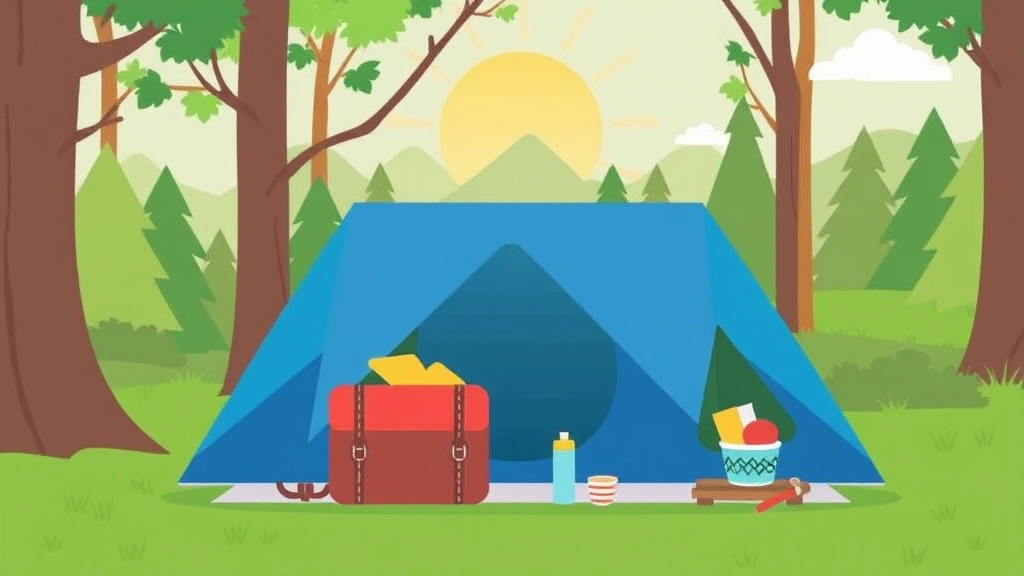Summer Camp Packing Guide
Embarking on a summer camp adventure is thrilling, but packing can often feel like an overwhelming task. Wondering how to pack for summer camp effectively? This guide will walk you through everything you need to bring, from essential clothing and recommended footwear to toiletries, sun protection, and sleeping gear. We’ll also cover how to organize your luggage, the outdoor equipment you’ll need, and even some comfort and fun items to enhance your camp experience.
We’ll share practical tips on managing laundry, highlight items to avoid packing, and reveal efficient packing techniques to maximize space. Whether you’re a first-time camper or a seasoned pro, these insights will ensure you’re well-prepared for a memorable and hassle-free summer camp. So, let’s dive in and make your packing as smooth and stress-free as possible!
Essential Clothing for Summer Camp
Alright, let’s talk about essential clothing for summer camp. We all know the struggle of packing for a trip, especially when it’s for something as unpredictable as summer camp. What do you really need? What can you leave behind? Let’s dive in.
What Are the Basics?
First off, you need to cover the basics. Think about the daily grind at camp: activities, weather changes, and the inevitable dirt and sweat. Here’s a quick list to make sure you don’t miss anything:
- T-Shirts and Tank Tops: Go for breathable fabrics like cotton. You’ll need at least one for each day.
- Shorts: Comfortable and durable. You might want to pack a couple of extra pairs just in case.
- Long Pants: For those chilly evenings or hikes through the woods. Convertible pants are a win-win.
- Swimwear: A must-have for pool days or lake swims. Bring at least two so you always have a dry one.
- Underwear and Socks: Enough to last the entire camp, plus a few extras. Trust me, you’ll thank me later.
- Pyjamas: Something comfy for sleeping. Remember, camp nights can get cooler.
- Light Jacket or Hoodie: Even in summer, evenings can be cold. A light jacket or hoodie will keep you warm.
Specialised Clothing
Now, let’s talk about the stuff you might not think about but will definitely need:
- Rain Gear: A waterproof jacket and maybe even some rain boots. Getting soaked is no fun.
- Hat and Sunglasses: Protect yourself from the sun. A wide-brimmed hat and a good pair of sunglasses are lifesavers.
- Activewear: If your camp includes sports or physical activities, pack some activewear. Moisture-wicking fabrics are your best bet.
Pro Tips for Packing
- Layer Up: Think layers. It’s easier to adjust to changing weather.
- Mix and Match: Choose clothes that can be mixed and matched. It saves space and gives you more outfit options.
- Old Clothes: Don’t bring your best outfits. Camp can be rough on clothes, so it’s better to pack items you don’t mind getting dirty or even ruined.
Real Talk
I remember my first summer camp experience. I packed like I was going on a month-long vacation. Big mistake. Half the stuff I brought, I never even used. Stick to the essentials and you’ll be golden.
Looking for more tips on how to prepare for summer camp? Check out our section on summer camping essentials to make sure your packing list is complete. Also, don’t miss our guide on summer camp outfitters for all your gear and clothing needs.
Recommended Footwear for Camp Activities
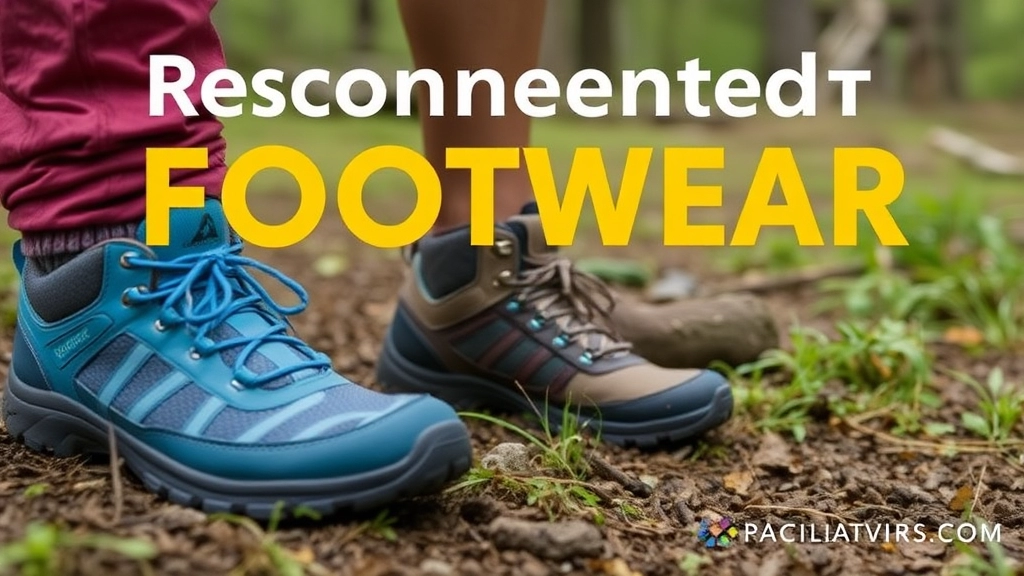
Alright, let’s talk footwear for summer camp.
Because let’s be real, no one wants blisters or soggy feet.
What’s the best footwear for camp activities?
Great question.
Here’s the lowdown on what you need:
Sturdy Hiking Boots
- Why? For those epic trails and rugged terrain.
- Features to look for: Ankle support, waterproof, good grip.
- Pro Tip: Break them in before camp to avoid nasty blisters.
Comfortable Trainers
- Why? Perfect for everyday activities and sports.
- Features to look for: Breathable, cushioned, lightweight.
- Pro Tip: Go for a pair you know you can trust. No one wants to deal with foot pain.
Water Shoes
- Why? Essential for water activities like kayaking and swimming.
- Features to look for: Quick-drying, non-slip sole, snug fit.
- Pro Tip: Make sure they’re easy to slip on and off. No one likes wrestling with wet shoes.
Flip-Flops or Sandals
- Why? Great for shower time and casual wear.
- Features to look for: Durable, comfortable, quick-drying.
- Pro Tip: Opt for a pair with a bit of arch support. Your feet will thank you.
What about extra pairs?
Absolutely.
- Pack at least two pairs of each type. You never know when one might get wet or dirty.
- Rotate your shoes. Give each pair a chance to dry out and air.
Story Time:
Last summer, my mate Tom thought one pair of trainers would be enough.
By day three, he was rocking soggy shoes and regretting every step.
Don’t be Tom.
Final Footwear Tips:
- Socks matter too. Pack moisture-wicking socks to keep your feet dry.
- Check the camp’s activity list. Make sure your footwear matches the planned activities.
- Label your shoes. Camps can get chaotic, and you don’t want to lose your favourite pair.
Remember, the right footwear can make or break your camp experience.
So choose wisely, pack smart, and keep those feet happy.
Packing Toiletries and Personal Care Items
Ever wondered what toiletries are essential for summer camp? Let’s face it, packing can be a hassle, especially when you’re trying to squeeze everything into one bag. But don’t worry, I’ve got you covered with the essentials to keep you fresh and ready for camp adventures.
What Toiletries Do I Really Need?
- Toothbrush and Toothpaste: Start with the basics. You don’t want to be that person with morning breath. A travel-sized toothpaste is compact and does the job.
- Shampoo and Conditioner: Depending on your hair type, you might want a small bottle of each. Most camps have showers, but they don’t provide the luxury of your favourite brands.
- Soap or Body Wash: A bar of soap is easy to pack, but if you prefer body wash, grab a travel-sized bottle. Trust me, after a day of outdoor activities, you’ll want to feel clean.
- Deodorant: This is non-negotiable. Camp days are hot, and you’ll be moving a lot.
Keeping It Organised
- Travel-Size Containers: Invest in these to save space. They’re perfect for your shampoo, conditioner, and body wash.
- Toiletry Bag: A waterproof bag is ideal. It keeps everything together and prevents spills from ruining your clothes.
Personal Care Items You Shouldn’t Forget
- Sunscreen: This is crucial. You’ll be outside a lot, and sunburn is a real party pooper. Choose a high SPF and reapply often.
- Insect Repellent: Mosquitoes love campsites. A good repellent keeps those pesky bugs at bay.
- First-Aid Kit: A small kit with plasters, antiseptic wipes, and pain relievers can be a lifesaver.
- Feminine Hygiene Products: If you need them, pack enough for the entire stay. Better safe than sorry!
Real-Life Example
Last summer, my friend Sarah forgot her insect repellent. By day two, she was covered in bites and itching like crazy. Learn from her mistakeâpack that repellent!
Important Sun Protection and Insect Repellents
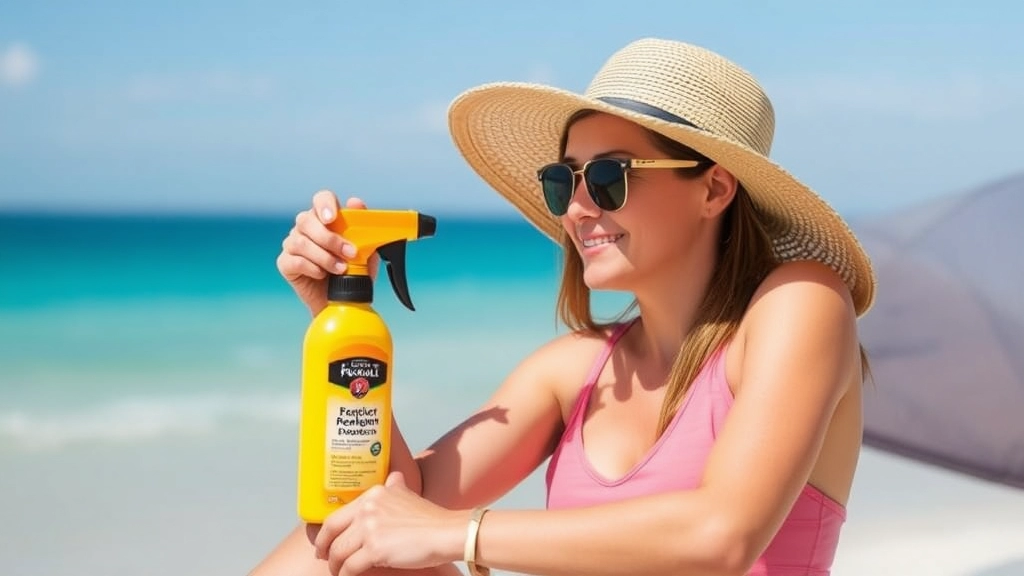
Alright, let’s talk about sun protection and insect repellents. You know, the stuff that keeps you from turning into a lobster or a mosquito buffet at summer camp.
Why Sun Protection Matters
Ever had a sunburn that made you feel like a crispy piece of bacon? Not fun.
Here’s the deal:
- Sunscreen: Go for SPF 30 or higher. Make sure it’s water-resistant. You’ll be swimming, sweating, and running around.
- Lip Balm with SPF: Your lips can burn too. Trust me, you don’t want that.
- Hat: A wide-brimmed hat is your best friend. Keeps the sun off your face and neck.
- Sunglasses: Protect your eyes. Plus, you’ll look cool.
The Insect Repellent Lowdown
Nothing ruins a campfire story like swatting away mosquitoes.
Here’s what you need:
- DEET or Picaridin: These are the heavy hitters. Effective and long-lasting.
- Natural Repellents: If you prefer something less intense, go for lemon eucalyptus oil.
- Clothing Treatment: Permethrin-treated clothing can be a game-changer. Keeps ticks and mosquitoes at bay.
Real Talk: Stories from the Field
Remember that time I forgot my sunscreen and ended up looking like a tomato? Yeah, learned my lesson.
Or last summer, when my mate Dave didn’t use insect repellent and got bitten so much he looked like he had chickenpox. Don’t be Dave.
Quick Tips to Keep in Mind
- Reapply Sunscreen: Every two hours. More often if you’re swimming or sweating.
- Layer Up: Light, long-sleeve shirts can protect you from both sun and bugs.
- Check for Ticks: Especially if you’re hiking. They love to hide in sneaky places.
Sleeping Gear: Bedding and Linens
Alright, let’s talk about one of the most crucial aspects of your summer camp experience: sleeping gear. Trust me, getting a good night’s sleep can make or break your camp adventure. So, what do you need to pack to ensure you’re comfy and well-rested?
Why Bedding and Linens Matter
Ever tried to sleep on a thin, cold mattress with no proper bedding? It’s like trying to nap on a rock. And nobody wants to be the grumpy camper because they didn’t pack the right gear. So, let’s dive into what you should bring.
The Must-Haves
Here’s a list of essentials you absolutely cannot skip:
- Sleeping Bag: This is your best friend at camp. Go for a lightweight, but warm sleeping bag. Make sure it’s rated for the temperatures you’ll be facing. You don’t want to freeze at night.
- Pillow: Don’t underestimate the power of a good pillow. A small, compressible camping pillow works wonders.
- Sheets and Blankets: If you’re staying in a cabin, you might need sheets and a blanket. A fitted sheet can make a world of difference on those camp mattresses.
- Sleeping Pad or Air Mattress: If you’re camping in a tent, a sleeping pad or air mattress can save your back. Trust me on this one.
Pro Tips for Bedding and Linens
- Layer Up: Nights can get chilly, even in summer. Pack an extra blanket or two. Layers are your friend.
- Waterproof Liners: If you’re expecting rain or dew, a waterproof liner can keep your sleeping bag dry.
- Compact and Lightweight: Go for gear that’s easy to pack and doesn’t take up too much space. You’ll thank yourself later.
Real-Life Example
I remember my first summer camp. I thought I could get by with just a thin blanket. Big mistake. I ended up borrowing an extra sleeping bag from a friend. Lesson learned. Now, I always pack an extra layer, just in case.
For more tips on making the most of your camp experience, check out our guide on creative summer camp themes and explore some classic camp activities to enhance your adventure.
Bedding and Linens Checklist
Here’s a quick checklist to make sure you’ve got everything covered:
Organising Your Luggage and Storage Solutions
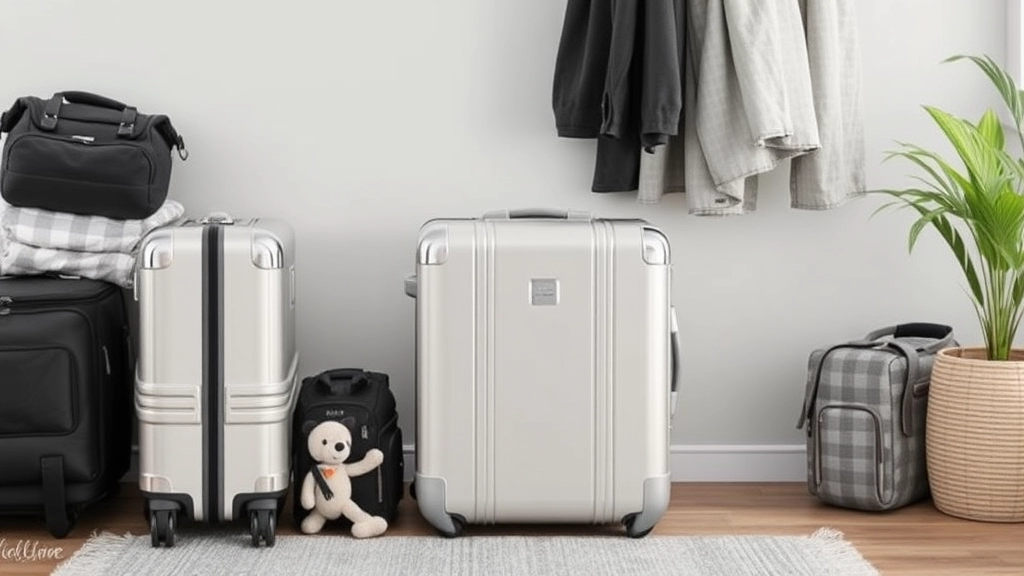
Ever packed for camp and realised your bag looks like a tornado hit it?
Yeah, me too.
Let’s dive into how to keep it all neat and tidy.
Why Organise?
You don’t want to be the one digging through chaos every morning.
Space-Saving Hacks
- Roll, Don’t Fold: Rolling clothes saves space and keeps them wrinkle-free.
- Packing Cubes: These are a game-changer. Separate your stuff into cubes – one for clothes, one for toiletries, etc.
- Compression Bags: Perfect for bulky items like jackets. Just squeeze out the air.
Easy Access Tips
- Top Layer Essentials: Keep daily items like toothbrush and sunscreen on top. No rummaging required.
- Label Everything: Especially if you’re using packing cubes. Quick grab, no hassle.
Staying Organised at Camp
- Laundry Bag: Keep dirty clothes separate. Trust me, it’s a lifesaver.
- Small Bins or Drawers: If space allows, these can keep your area tidy.
Personal Story Time
I remember my first camp – I tossed everything in a duffel bag and hoped for the best.
Spoiler: It was a mess.
Using these tips, my next trip was smooth sailing.
Outdoor Equipment and Specialty Gear
What kind of outdoor equipment do I need for summer camp? This is a question that pops up a lot. The right gear can make all the difference between a good time and a great time. Let’s dive into the essentials you shouldn’t miss.
Must-Have Outdoor Equipment
Backpack: First up, you need a sturdy backpack. Trust me, it’s your best friend at camp. Look for one that’s durable, water-resistant, and has multiple compartments. You’ll need it for day hikes, carrying snacks, water, and those random treasures you might find.
Water Bottle: Hydration is key. A reusable water bottle, preferably one that keeps your drink cool, is a must. You don’t want to be that person constantly looking for water.
Torch/Headlamp: When the sun goes down, you’ll need some light. A headlamp is super handy because it keeps your hands free. But a good torch works too. Make sure to pack extra batteries.
Multi-Tool: Think Swiss Army knife. It’s compact and can handle a bunch of tasksâfrom cutting rope to opening cans. Just make sure it’s camp-approved.
Specialty Gear for Specific Activities
Fishing Gear: If your camp offers fishing, bring a rod, tackle, and bait. Nothing fancy, just the basics to get you started.
Climbing Gear: Some camps have climbing walls or even natural rock faces. If you’re into that, check if you need to bring your own harness and shoes.
Water Sports Equipment: Kayaking, canoeing, or paddleboarding? Some camps provide the gear, but if you’re serious about it, you might want to bring your own life jacket, gloves, or even a small dry bag for your valuables.
Archery Gear: If archery is on the agenda, and you’re a fan, bring your own bow and arrows. Just make sure to check with the camp’s rules first.
Pro Tips for Packing Outdoor Gear
- Label Everything: Camps can get chaotic. Use waterproof labels to mark your name on all your gear.
- Pack Smart: Use packing cubes or zip-lock bags to keep things organised. This way, you’re not rummaging through your bag every time you need something.
- Test Your Gear: Before you head out, make sure everything works. There’s nothing worse than finding out your torch is dead when you need it most.
Real Stories from Campers
One summer, my mate Dave forgot his headlamp. We were on a night hike, and he had to rely on the dim light from his phone. Lesson learned: always double-check your gear list.
Another time, Sarah brought a multi-tool that she never used before. She didn’t realise it had a mini saw, which came in handy when we needed to cut some branches for a campfire. Always good to know what your gear can do.
For a comprehensive list of what to bring, check out our 1-Week Summer Camp Packing List. And if you’re looking for some great destinations, don’t miss our guide on Top Summer Camps in Lexington, KY.
Comfort and Fun Items to Enhance the Experience
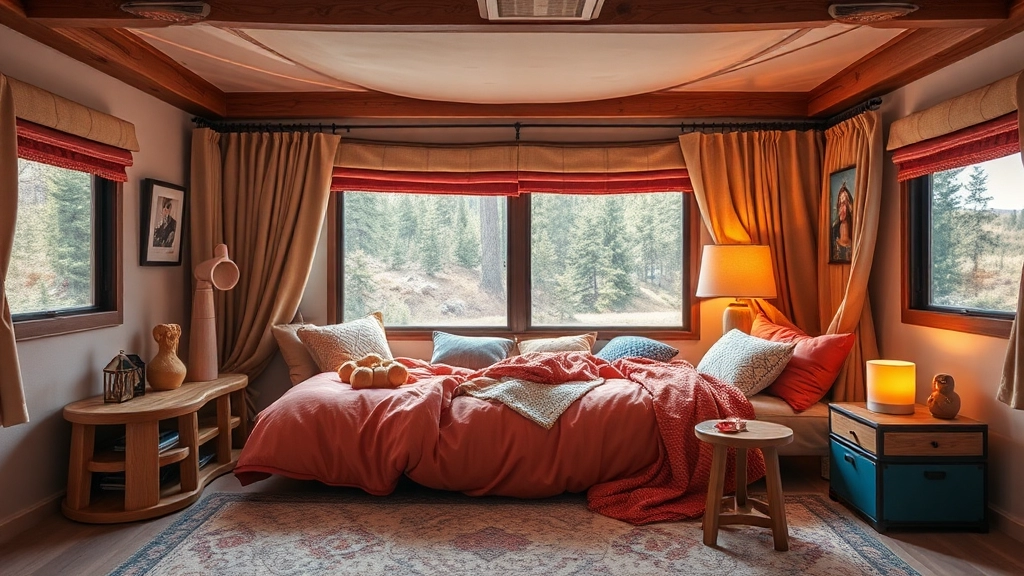
Ever wondered what makes a summer camp truly memorable? It’s not just the activities but the little comforts and fun items that elevate the whole experience. So, what should you pack to make your camp life more enjoyable? Let’s dive in.
Comfort Items
First off, comfort is king. You want to feel at ease while you’re away from home. Here are a few essentials:
- Favourite Pillow: Nothing beats your own pillow for a good night’s sleep.
- Blanket: A cosy blanket can make those campfire nights even better.
- Camp Chair: Lightweight and foldable, perfect for sitting around the fire or just chilling.
Fun Items
Now, onto the fun stuff. These items will make your downtime more enjoyable:
- Books or E-Reader: Great for some quiet time.
- Board Games or Card Games: Perfect for bonding with new friends.
- Journal: Capture memories and jot down thoughts.
- Musical Instrument: If you play something portable like a guitar or ukulele, bring it along. Campfire sing-alongs are a classic.
Gadgets and Tech
Let’s not forget some tech to keep things interesting:
- Portable Charger: Keep your devices powered up.
- Camera: Capture those unforgettable moments.
- Headphones: For some personal music time or to watch movies.
Personal Touches
Adding a bit of your personality can make your camp space feel like home:
- Photos: Bring a few pictures of family and friends.
- Decorations: Small items like fairy lights or a favourite poster can add a personal touch to your bunk.
Practical Fun
Sometimes, fun can be practical too:
- Water Bottle with Infuser: Stay hydrated and enjoy flavoured water.
- Hammock: If the camp allows it, a hammock can be a great spot to relax.
Real Stories
I remember my first summer camp. I packed a deck of cards and it was a game-changer. Every evening, we’d gather and play games. It was a fantastic way to make friends. Another camper brought a small portable speaker. We had impromptu dance parties that lifted everyone’s spirits.
Quick Tips
- Pack Light: Don’t overdo it. Choose items that serve multiple purposes.
- Label Everything: Make sure your name is on all your belongings.
- Check Camp Rules: Some camps have restrictions on what you can bring.
Managing Laundry and Dirty Clothes at Camp
How do you handle laundry at summer camp without losing your mind?
Managing laundry and dirty clothes at camp can feel like a hassle, but it doesn’t have to be. Let’s dive into some real, practical tips to keep your clothes fresh and your camp experience stress-free.
The Laundry Dilemma
Why is laundry always a pain at camp?
Because no one wants to spend their summer scrubbing socks, right? But keeping on top of it is key to staying comfortable and hygienic.
Quick Tips for Managing Laundry
- Pack a Laundry Bag: A simple mesh bag can keep your dirty clothes separate from the clean ones. Trust me, it’s a lifesaver.
- Schedule Laundry Days: If the camp offers laundry services, know the schedule. If not, plan a day to tackle it yourself.
- Quick-Dry Clothing: Pack clothes that dry quickly. It’s a game-changer when you need to wash something and wear it the next day.
- Laundry Detergent Sheets: These are compact and easy to use. Just toss one in with your clothes and you’re set.
DIY Washing Tips
No washing machine? No problem.
Sometimes you’ve got to go old school. Here’s how:
- Bucket Method: Fill a bucket with water, add detergent, and let your clothes soak. Give them a good scrub, rinse, and hang to dry.
- Stream Rinse: If there’s a clean stream nearby, you can rinse your clothes there. Just be eco-friendly about it.
Handling Stains
Got a stain emergency?
Here’s the deal: act fast. Use a bit of water and detergent to pre-treat the stain before it sets. It’s much easier to deal with it right away than later.
Keeping Clothes Fresh
How do you keep clothes from smelling funky?
- Air Out Daily: Hang your clothes outside whenever possible. Fresh air works wonders.
- Use Fabric Fresheners: A small spray bottle can help keep things smelling nice.
The Packing Strategy
How do you pack for easy laundry management?
- Roll, Don’t Fold: Rolling saves space and keeps clothes less wrinkled.
- Separate Bags: Use separate bags for clean and dirty clothes. It’s simple, but effective.
Real Talk: What Works for Me
I remember my first camp, I was overwhelmed by the laundry situation. But once I got the hang of these tips, it was smooth sailing. Keeping a routine and using the right tools made all the difference.
For more tips on how to make camp life easier, check out our creative summer camp themes and our guide on essential camp gear.
Items to Avoid: What Not to Pack for Summer Camp

Worried about overpacking for summer camp?
I get it.
We’ve all been there—staring at a mountain of stuff, wondering what’s essential and what’s just extra weight.
Let’s cut through the clutter and make sure you only bring what you need.
No Room for Valuables
Leave the expensive jewellery, gadgets, and anything irreplaceable at home.
Trust me, camp is not the place for your prized possessions.
Ditch the Fancy Clothes
You’re going to get dirty.
That’s the beauty of camp.
Leave the designer outfits and fancy shoes behind.
Stick to practical, comfy clothes that can take a beating.
Skip the Junk Food
Most camps have strict rules about food.
Bringing your own snacks can attract critters and might even be against the rules.
Avoid Heavy Books
We all love a good read, but heavy books are a no-go.
Opt for an e-reader if you must, but even then, keep it light.
No Need for Extra Toiletries
You don’t need a full beauty regimen at camp.
Stick to the basics: toothbrush, toothpaste, soap, and shampoo.
Leave the Toys and Games
Camp is about unplugging and enjoying nature.
Leave the toys, board games, and video games at home.
Safety Hazards
Knives, fireworks, and anything else that could be dangerous?
Big no.
Over-the-Top Gadgets
Fancy electronics like drones or advanced cameras can be more of a hassle than they’re worth.
Too Many Shoes
One pair of sturdy trainers and some flip-flops are usually enough.
Avoid Overpacking
You don’t need your entire wardrobe.
Pack smart, pack light.
Keep It Simple
The keyword here is simplicity.
Less is more when it comes to packing for camp.
Efficient Packing Techniques for Maximum Space
Ever stared at your suitcase, wondering how on earth you’ll fit everything in?
We’ve all been there.
Packing for summer camp can feel like a game of Tetris.
But don’t stress.
I’ve got some killer tips to help you maximise space and keep things organised.
Let’s dive in.
Start with a Packing List
First things first, make a list.
Trust me, it’s a lifesaver.
- Clothes
- Footwear
- Toiletries
- Sun protection
- Bedding
- Outdoor gear
Check off items as you go.
Roll, Don’t Fold
Rolling your clothes saves heaps of space.
Plus, it keeps them wrinkle-free.
- T-shirts
- Shorts
- Socks
- Undergarments
Roll them tight and pack them in rows.
Use Packing Cubes
Packing cubes are a game-changer.
They keep your stuff organised and compact.
- One cube for tops
- One for bottoms
- Another for undies and socks
It’s like having mini drawers in your bag.
Fill Every Nook and Cranny
Don’t waste any space.
Stuff socks and undies into shoes.
Fill gaps with small items like:
- Chargers
- Toiletries
- Accessories
Vacuum-Sealed Bags
For bulky items like jackets or sleeping bags, vacuum-sealed bags are gold.
They compress your gear and save loads of room.
Layer Strategically
Think layers.
Put the heaviest items at the bottom.
Lighter stuff goes on top.
This keeps your bag balanced and easy to carry.
Wear Your Bulkiest Items
Heading to camp?
Wear your bulkiest items.
- Hiking boots
- Jacket
- Hat
This frees up space in your bag.
Keep Essentials Accessible
Don’t bury important stuff.
Keep essentials like:
- Passport
- Wallet
- Phone
In an easy-to-reach pocket.
Double-Check Weight Limits
If you’re flying, check the weight limits.
Overweight bags can cost a fortune.
Weigh your bag before you leave.
Quick Recap
- Roll, don’t fold.
- Use packing cubes.
- Fill every nook and cranny.
- Vacuum-sealed bags for bulky items.
- Wear your bulkiest clothes.
- Keep essentials accessible.
Packing doesn’t have to be a nightmare.
With these tips, you’ll be a pro in no time.
Got any packing hacks of your own? Check out our guide on summer camping attire to stay cool and comfortable during your trip.
For more information on creating a balanced schedule for your camp experience, visit our balanced summer camp schedule ideas page.
Happy packing!
FAQs on How to Pack for Summer Camp
What type of footwear should I pack for summer camp?
It’s important to pack a variety of footwear: sturdy hiking boots for trails, comfortable trainers for daily activities, water shoes for aquatic events, and flip-flops or sandals for casual wear and showers.
How can I protect myself from the sun and insects at camp?
Use SPF 30 or higher sunscreen, wear a wide-brimmed hat, and apply DEET or Picaridin insect repellent. Consider wearing permethrin-treated clothing for extra protection.
How should I organize my luggage for camp?
Utilize packing cubes to separate items, roll your clothes to save space, and keep essentials on top for easy access. Use a laundry bag to separate dirty clothes.
What comfort and fun items should I bring to camp?
Consider packing a favourite pillow, blanket, and camp chair for comfort. For fun, bring books, board games, a journal, or even a musical instrument.
What items should I avoid bringing to summer camp?
Avoid packing valuables, fancy clothes, junk food, heavy books, and excess toiletries. Keep it simple and practical.
How many pairs of shoes should I bring?
Bring at least two pairs of each type of footwear to ensure you have backups in case one gets wet or dirty.
Are there any safety considerations for packing?
Yes, avoid bringing knives, fireworks, or any dangerous items. Stick to camp-friendly gear.
Any tips for labeling and keeping track of belongings?
Label all your belongings with your name to prevent loss, especially in the camp’s bustling environment.
What should I do to prepare my footwear before camp?
Break in your hiking boots before camp to avoid blisters and discomfort during activities.
How can I ensure I stay organized during camp?
Use small bins or drawers to keep your area tidy and ensure you have a system for dirty laundry.
References
-
How to Choose Hiking Boots
-
Camping Health and Safety Tips
-
The Best Insect Repellents for Outdoor Adventures

